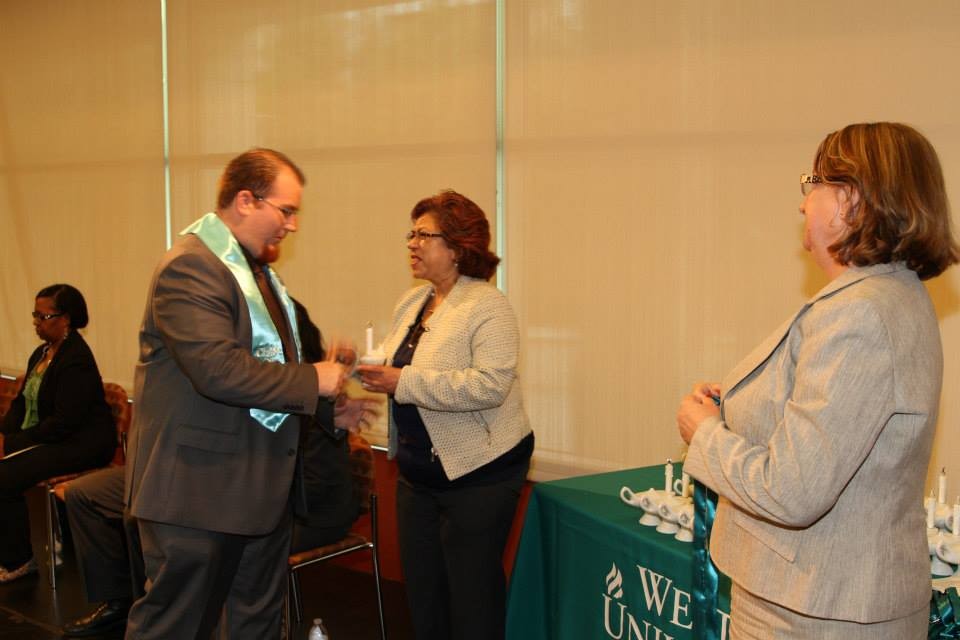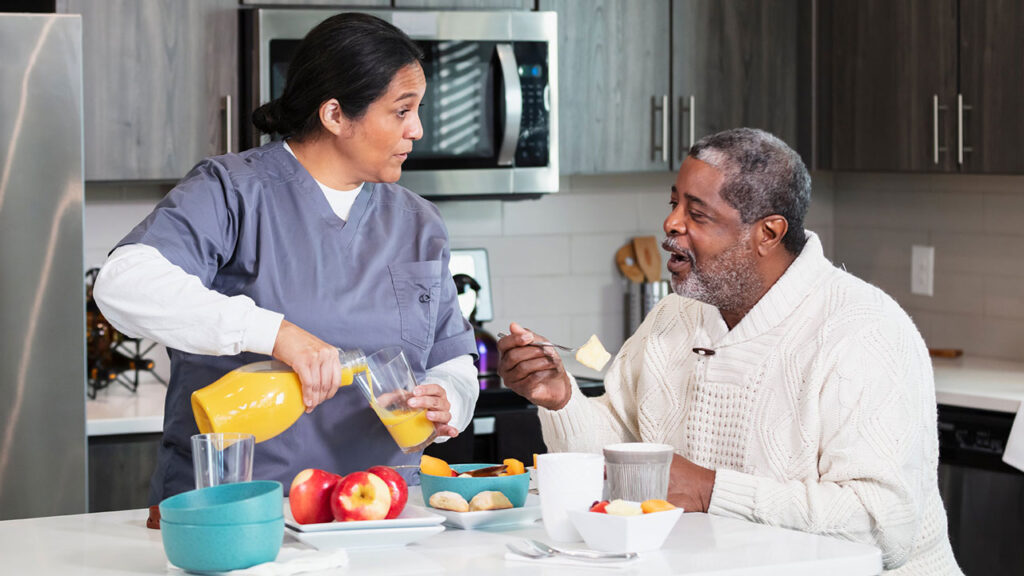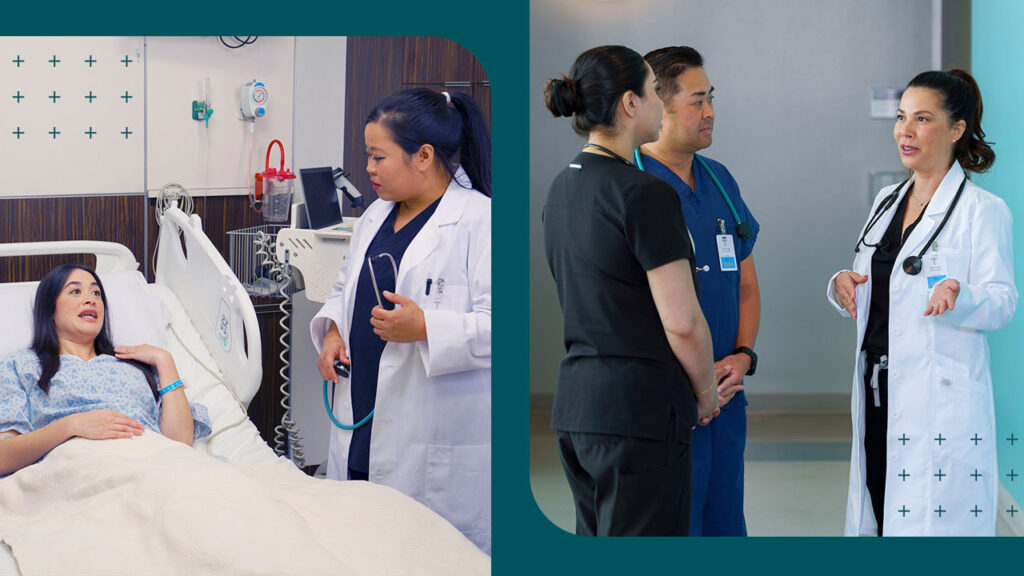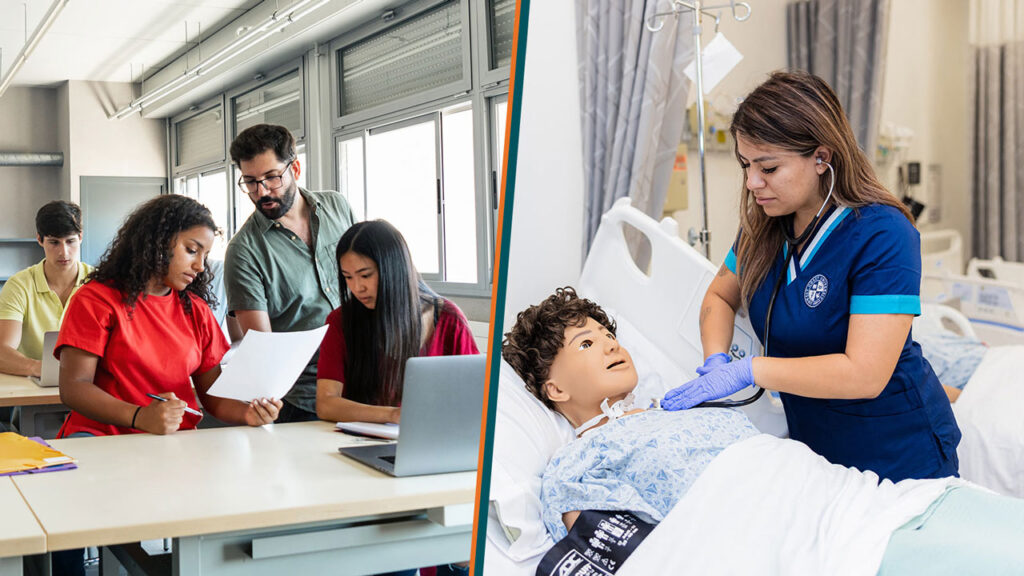Inspired by the help and care he received during six months of rehabilitation, Mike Estona decided to change career paths after a devastating motorcycle accident.
Working first as an emergency medical technician in an ambulance, Estona soon discovered that many of the classes he needed to take before entering a nursing program were heavily impacted. Instead of adding his name to a long waiting list or joining an enrollment lottery system, he decided to explore other options — which is how he learned about West Coast University’s Bachelor of Science in Nursing program.
After graduating with his BSN in 2014, he began working as a registered nurse in the Los Angeles area but soon decided to enroll in West Coast University’s MSN-Nurse Educator program. In 2018, Estona returned once again to WCU, but this time as a faculty member.
Now an instructor at WCU-Ontario, Estona helps teach students the skills they need to work in a modern hospital from the safe, learning environment of the simulation lab. His favorite part of teaching, he said, is watching students go from having little medical knowledge to becoming capable, competent nurses.
“I love it when a student realizes they do know the answer and are able to make the appropriate decision based on their critical thinking skills and what they have learned,” he said. “It certainly feels like a reflection of my own experience in the program but it really drives this feeling home when I see them come to that conclusion during their simulations.”
•••
Tell us about your nursing job. How are things going on the front lines?
My other job involves working as internal registry at a Los Angeles area hospital. I have recently been assigned to work on the COVID-19 isolation wing of the hospital, and as such I have experienced firsthand the concerns of proper precautions and the use of the necessary PPE. The facility has been rationing PPE to ensure the nurses on the unit have protection when dealing with these patients, and it is rather important that we do our part to ensure PPE is used appropriately and not in a wasteful manner. In the coming months, it is probable that we will see a large increase in the number of cases requiring hospitalization, which will further tax the medical field. Hopefully, the PPE suppliers and medical field staff will be able to rise to the occasion to meet increased demand for health care. Currently we need more nurses, providers and support staff available to provide quality care than ever before.
What advice would you give nursing students working through the pandemic today?
As nurses, we have a lot of direct patient contact. While this puts us in a position to help people suffering from COVID-19 tremendously, it also places us in positions of high risk. Many fellow healthcare professionals I have talked to are extremely worried about putting their loved ones at risk by bringing the virus home from work. My friends and I have been interacting over social media and conference call programs to chat and kind of act to keep each other sane in this trying time.
Why did you want to get into nursing?
Believe it or not, I used to be a master technician for a major German automotive brand. I was on my way to work on my motorcycle when I was run over by a truck. I spent a long time recovering from my injuries and during that time I experienced a wide range of nursing care, some good and some bad. This definitely gave me an appreciation for the medical field and especially for the value of quality care from a patient’s perspective.
Did you ever want to quit while in the program? If so, what or who got you through it?
Nursing school is very stressful and takes a lot of effort and dedication in order to persevere regardless of what program one decides to pursue. Nursing can be a stressful profession as much as it is a rewarding one. I am not the type to quit anything I start as long as there is any chance at success.
What advice would you give those considering going into the healthcare field today?
For those nursing students struggling with what is going on in the healthcare field and the world in general today, don’t lose hope. While this pandemic is unprecedented in our lifetimes, we will get through this and we will prevail. If you feel overwhelmed or worried, don’t forget that we are all in the same boat together and you have friends, family and colleagues you can lean on for support in these trying times. For those considering the nursing profession, do not let the current situation dissuade you. This is a noble and rewarding profession which, although trying at times, is a very fulfilling career path to take.
WCU provides career guidance and assistance but cannot guarantee employment. The views and opinions expressed are those of the individuals and do not necessarily reflect the beliefs or position of the school or of any instructor or student.



